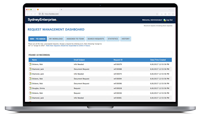Teaching about AI in the Workplace
Lauren Hays
I recently read an important article for anyone who conducts training and is responsible for the information environment at his or her place of employment.
The article is Don’t Expect Juniors to Teach Senior Professionals to Use Generative AI: Emerging Technology Risks and Novice AI Risk Mitigation Tactics.
The authors of the study found that younger employees—who are often seen as technical experts—recommend strategies for using generative AI that are not best practice. Specifically, the authors found junior employees may recommend strategies that are: “1) grounded in a lack of deep understanding of the emerging technology’s capabilities, 2) focus on change to human routines rather than system design, and 3) focus on interventions at the project-level rather than system deployer- or ecosystem-level.”
Table 2 of the article is particularly insightful. It provides an overview of what junior employees recommend and what more seasoned experts recommend with generative AI.
I encourage information professionals to review this article–especially if you are engaged in training or provide any type of support for generative AI at your organization.
While I was reading the article above, I thought it might be useful to ask Claude what suggestions it has for special librarians, based on the information found in the study. Here is what it suggested:
Become the AI Literacy Expert:
- Special librarians should strive to become the AI literacy experts in their organizations. This means not only understanding how to use AI tools but also grasping the underlying principles, limitations, biases, and ethical considerations.
- Consider obtaining certifications or taking courses in AI and machine learning to bolster your expertise.
Develop AI Governance Frameworks:
- As information stewards, special librarians can lead in developing AI governance frameworks. These should include guidelines for responsible AI use, data privacy protocols, and strategies for mitigating risks like hallucinations or biased outputs.
- Collaborate with IT, legal, and HR departments to ensure the framework aligns with organizational policies and regulations.
Curate AI Resources and Best Practices:
- Create a curated collection of AI resources, including articles, whitepapers, and case studies that demonstrate best practices, common pitfalls, and successful implementations.
- This collection can serve as a go-to resource for all employees, regardless of their seniority or technical expertise.
Conduct AI Impact Assessments:
- Before integrating AI tools into workflows, conduct impact assessments. Evaluate how the AI will affect existing processes, data integrity, and employee roles.
- This proactive approach can help identify potential risks and design system-level interventions, as recommended by seasoned experts in the article.
Foster Cross-Generational AI Learning Communities:
- Establish AI learning communities that bring together employees of all ages and experience levels. This can foster knowledge sharing where juniors share their technical skills, and seniors contribute their domain knowledge and critical thinking.
- These communities can help break down the assumption that younger employees are inherently better with AI.
Advocate for AI Training at All Levels:
- Push for comprehensive AI training programs that cater to different levels of expertise and roles within the organization.
- Ensure that training goes beyond basic tool usage to include topics like AI ethics, understanding AI outputs, and when to seek human intervention.
Monitor AI Developments and Update Practices:
- Given the rapid evolution of AI, regularly monitor developments in the field. Update your organization’s AI practices, training materials, and governance frameworks accordingly.
- This could involve subscribing to AI journals, attending conferences, or partnering with academic institutions.
Champion Responsible AI Use in Information Services:
- Model responsible AI use in your own work. Use AI to enhance, not replace, critical information services like research, data analysis, or content curation.
- Share case studies of how you’ve effectively and ethically integrated AI into your work to inspire others.
Facilitate AI Ethics Discussions:
- Organize seminars or workshops on AI ethics. Discuss topics like algorithmic bias, data privacy, and the societal impact of AI.
- These discussions can help all employees, regardless of their role or seniority, develop a more nuanced understanding of AI.
Collaborate with AI Vendors and Researchers:
- Engage with AI tool vendors and academic researchers. Provide feedback on tools, discuss industry-specific needs, and stay informed about upcoming features or research findings.
- This collaboration can help you influence the development of AI tools to better suit your organization’s needs and values.
I was pleased with the list generated by Claude. It highlighted having cross-generational discussions about AI which, given the article, will be important.
Lauren Hays
Dr. Lauren Hays is an Assistant Professor of Instructional Technology at the University of Central Missouri, and a frequent presenter and interviewer on topics related to libraries and librarianship. Please read Lauren’s other posts relevant to special librarians. Learn about Lucidea’s powerful integrated library systems, SydneyDigital, and GeniePlus, used daily by innovative special librarians in libraries of all types, sizes and budgets.
**Disclaimer: Any in-line promotional text does not imply Lucidea product endorsement by the author of this post.
Never miss another post. Subscribe today!
Similar Posts
Where Special Librarians Can Find Community after the SLA Dissolution
With the SLA dissolving after 116 years here are 9 ways special librarians can rebuild their professional networks and stay connected to the wider community.
2025 Summer Booklist: Humans & AI How Individuals Learn Joan Didion and Hidden Libraries
Each summer Lauren Hayes shares a personal reading list—and this year’s collection spans AI and education literary classics parenting reflections and bookish wanderlust.
Recent AI Developments Special Librarians Should Know About
Staying ahead of artificial intelligence advancements is a challenge. This post explores two key developments: test-time compute and OpenAI’s transformative Deep Research tool.
Growing Your Leadership Skills: 7 Tips for Special Librarians
Great library leaders aren’t born—they’re made through learning self-reflection and practice. Here are seven strategies to help you grow and lead with impact.







Leave a Comment
Comments are reviewed and must adhere to our comments policy.
0 Comments